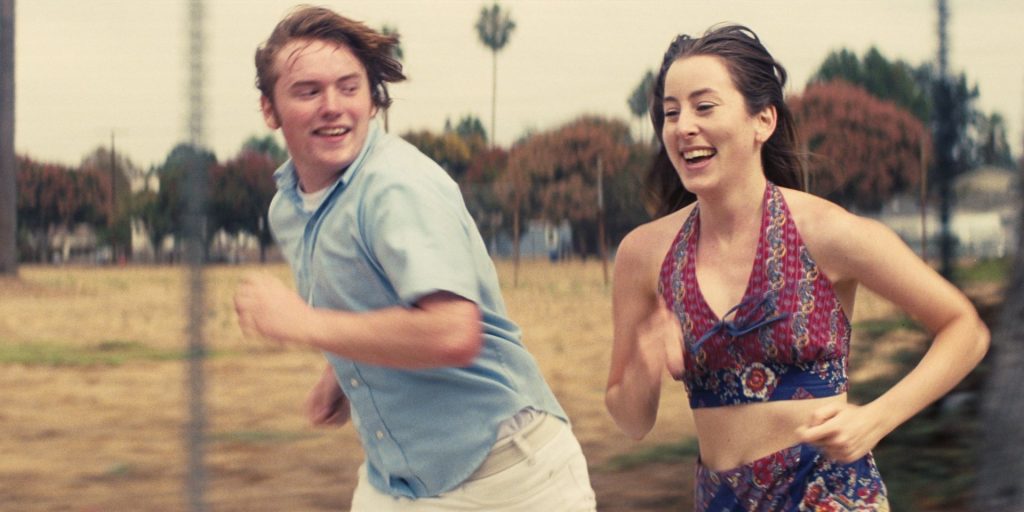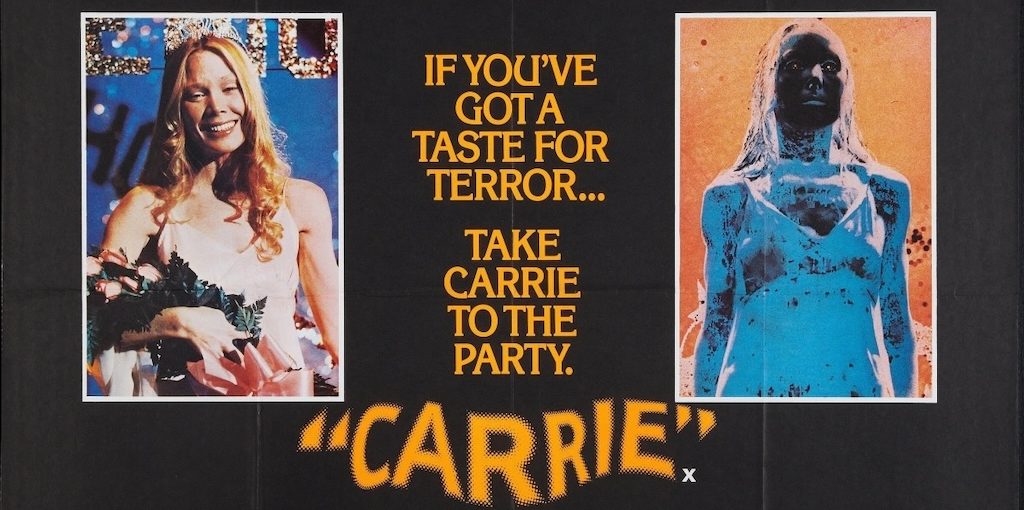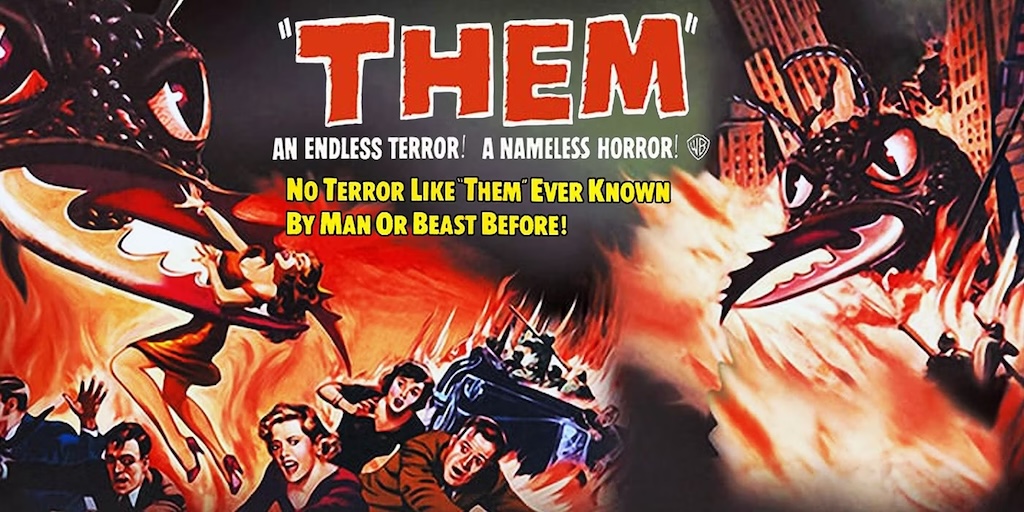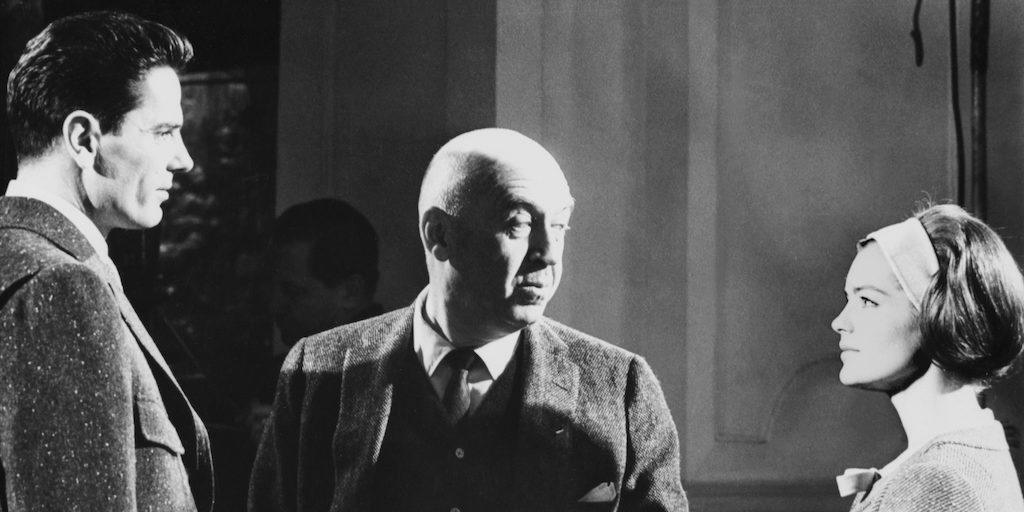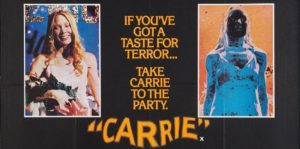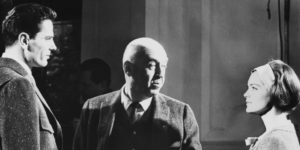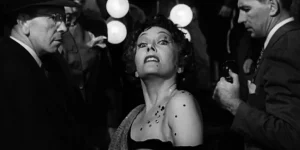DOING ANYTHING TOGETHER
There are many, many good things to say about Licorice Pizza, a virtuous and hypnotic film that is both melancholic and vital at the same time. If I had to start pointing out a virtue, I would say that few films in recent years use the art of narrative ellipsis and off-screen with such skill.
Let’s take a clear example. At one point in Licorice Pizza, Alana spies Gary out a window with a girl. We don’t know for sure if what Gary is doing is kissing or having sex. We can’t know because PTA knows that there is no need to specify it, that it would be unnecessary because the only thing that matters is knowing that Alana is hurt by what she has just discovered. We then see her run out of there, kiss a random man, and then go back to her house not wanting to talk to anyone.
This scene ends and the film performs an ellipsis. Then, thanks to a series of situations in a restaurant, we discover that Gary and Alana are having a fight. The only thing we need to know is that the root of that fight is in what Alana saw through that window, everything else (possible subsequent fights, jealousy, some unpleasant attitude on the part of the boy or girl) does not matter. This is one of the many things that PTA leaves out of a story that is both expansive and a marvel of narrative economy, highlighting both what we see and what we don’t. This is how we see long scenes of the characters seducing each other without being able to specify, shots that stop at some especially hypnotic detail of some extravagant character, but we never see how they ended up completely frustrating Gary and Alana’s acting careers, how could they have Jon Peters enraged when he saw his room flooded, or the intentions of that man who spies on the councilman and clearly refers to the disturbed Travis Bickle of Taxi Driver.
Both ellipses and off-screen seem to show an Anderson who considers other characters, other subplots, even the Hollywood industry and certain historical contexts of the United States of the 70s as an excuse to narrate the story between Alana and Gary. Furthermore, there are things in Gary and Alana’s life that he is not too interested in specifying, nor what exactly is Gary’s family dynamics, nor what ends up happening with Alana’s sisters and parents.
It’s as if the film wants to openly tell us that it is too focused on its two characters to be dealing with other things.
There aren’t many movies as in love with their characters and the bond between them as Licorice Pizza. An immediate example that comes to mind is Hitchcock’s Notorious, whom PTA had already explicitly honored in The Phantom Thread. There the English genius thought that World War II and the atomic threat served above all as a great excuse to tell a glamorous and perverse love story between a spy played by Ingrid Bergman and an agent played by Cary Grant. The story of Alana and Gary is not perverse, although it is glamorous in its own way, and much more luminous than the one sustained by the characters of Cary Grant and Ingrid Bergman in Notorious. Also the story of Alana and Gary is that of a couple, taking at least the definition that Stanley Cavell proposed about it: “a couple is not one that does things together, but one that does anything together”.
That’s what a good part of Licorice Pizza is about: Gary and Alana watching each other do anything. Travel by plane to go to a television program; sell waterbeds; film a councilman; run after a police car to keep Gary company while he is arrested; destroy the room of a film producer, break his car and then flee in a truck that takes advantage of the ups and downs of a road. Also accompanying Alana to an interview where Gary advises her to say yes to everything, absolutely everything, something that seems to extend to what she is willing to do for Gary and Gary for her, at least when that relationship is ging through a harmonious moment.
No other relationship in the film resembles Alana and Gary’s. The most similar to it is possibly the one that Gary has with his younger brother, something that is evident in one of the best scenes: the one in which Gary tries to call Alana on the phone. There Gary is with the phone in his hand and the only person who is seeing this situation is his younger brother, with whom Gary has enough confidence to do something so ridiculous in front of him without this being a problem. There we see that Gary only needs a couple of exchanges of glances with his brother to know what the latter advises him. Meanwhile, on the other end of the line, Alana can sense Gary’s presence just by his breathing. There is something incredibly significant in that situation. Gary’s relationship with his brother has one thing in common with his relationship with Alana: in both cases, the characters can recognize and communicate without resortng to speaking. The difference (besides the sexual interest, of course), is that Gary has known his brother all his life, while it only took a chat and a date for Alana and Gary to establish those levels of mutual knowledge.
There is something wildly romantic about this conception of a couple privileged with such a strong connection, which is why Licorice Pizza is both one of Anderson’s most mature and adolescent films.
This kind of extraordinary connection between the two leads is enhanced by the fact that the other relationships seen in the film don’t work out or seem fake. We have the man who likes to be with the Japanese despite the fact that he does not understand the language (and possibly for the sole fact of continuing with a Japanese food business), also the only boyfriend that we know of Alana´s and that she rejects because she does not want to continue with a Jewish ritual, or the councilor who puts his work before his partner. In all these cases, the couple is in a secondary place compared to other things that one of the two people considers more important: a restaurant, pleasing the family, a career. Alana and Gary, on the other hand, are together regardless of contexts.
As if this were not enough, Alana and Gary also seem like a couple that is alone in front of the world, especially the entertainment world of the 70s that ends up rejecting them again, and again, and again, even when the film seems to feint in more than an occasion with the fact that we will be in front of a story about the road to success.
It is not difficult to speculate that one of those reasons has to do with the imperfection of their faces. Perhaps that’s the reason of Jack Holden´s crazy coparison (an extraordinary and incredibly sober Sean Penn) when he says that Alana reminds him of Grace Kelly. Holden knows deep down that this is not true, and that is why that same character will expel Alana from her motorcycle in one of the most unexpected and perfect gags of the entire film.
None of this, of course, prevents Paul Thomas Anderson himself from seeming mesmerized by those faces; that’s how we see extreme close-ups of Gary’s pimply face or detail shots of Alana’s slightly crooked teeth.
There is something incredibly moving about Paul Thomas Anderson’s idea of turning these actors from flawed faces and bodies into characters we perceive as superstars in a romantic movie.
PTA films the adventures of Gary and Alana with an immersive gigantism and spectacularity, where even everyday conversations become visually original and intense, capable of finding suspense in apparently minor matters. Whether this is a flirtation between Gary and a stewardess, whether it is the face of an interviewer whose changing expressiveness taken in extreme close-up makes us doubt whether or not he believes the outlandish lies that Alana tells him.
It is also easy to feel that this idea of taking two young people with imperfect faces to make a romantic movie has absolutely nothing to do with political correctness. First of all because the appeal that Anderson ends up finding in them is genuine and feels absolutely real. And there to prove it is Alana Haim in an incredibly sexy scene, using only a telephone and a series of phrases with double meanings. But secondly, because after all it is impossible to think of another way to film a love story like this, other than with spectacular images that reflect the passionate state of a couple who live in a state of permanent desire and frustration and who without knowing it has established an unspoken game.
Since Gary is too young for her and she is too old for him, the boy will try to appear bigger and she smaller. This is how Gary opens businesses, he thinks in a practical way and when he officiates as the owner of a pinball place, he will be in charge of showing authority in front of the boys. Alana, meanwhile, will always be with younger boys, and even when she enters politics she will do so expressing teenage ideals of changing the world.
Still, we know that sooner or later time will be on Gary and Alana’s side. Either because the strong attraction between them will make them kiss regardless of the age difference, or because at some point Gary will turn 18 and then their relationship can be legalized. From this point of view, there is a clear suspense in the fact that we never know for sure how much time passes between the beginning and the end of the film, nor how many months have elapsed between those narrative jumps that abruptly take us from one situation to another. other.
At the same time, this feeling of imprecise time also gives Licorice Pizza a dreamy atmosphere. Perhaps also because the infatuation between Gary and Alana, beyond the conflicts, the fights and the frustrations, is still a kind of beautiful limbo between the primary and instinctive crush that some couples have when they first fall in love and the concretion.
And this is where the problematic factor of time comes in, which is what also indicates that at some point that intermediate state of Alana and Gary is going to have to end one way or another. Paul Thomas Anderson decides to stop the narration in the intermediate moment that goes from the first kiss to sex; where, as we know, things begin to mature and change. When Gary and Alana kiss, Gary yells at his customers and while pointing at Alana “this is Mrs. Valentine!”; a joke that alludes anyway to something that is on the way to consolidate.
Towards the end, while the protagonists are walking down the street, she tells him “I love you, Gary”, and he says nothing to her. Perhaps because this correspondence is understood, or perhaps – if one wants to have a pessimistic reading – because it may be that his love for her is fading as his gift for acting mysteriously did. The song chosen by Paul Thomas Anderson to close the film does not bode well either: it is “Tomorrow May Not Be Your Day” by Taj Mahal. This musical choice is not, of course, the announcement of an imminent separation or anything like that, but it is the awareness that PTA decides to stop the story just in an instant that seems too beautiful to be ruined by a few more scenes. That kind of ending reminds us of that phrase by Orson Welles when he said that happy endings do not exist, but what exists is knowing when to stop the story.
Licorice Pizza is a moving ending, like almost all of Anderson’s endings, which are gloated in the intensity of their characters. However, in Licorice Pizza that intensity is not destructive like Daniel Plainview’s in There Will Be Blood, nor furious and potentially dangerous like Barry’s in Drunk with Love, nor unpredictable and perhaps mystical like Freddy Quell’s in The Master; it is a happy and paradoxically calm intensity that confirms that phrase by Borges that assures that happiness and serenity are very similar states of being. Gary and Alana know, by the end of the story, that at least for that moment, in an imprecise but adored time, they are in a state of wonderful fulfillment, happy to be walking down the street together, talking about whatever and doing anything.
(Canada, United States, 2021)
Script, direction: Paul Thomas Anderson. Cast: Alana Haim, Cooper Hoffman, Sean Penn, Bradley Cooper, Tom Waits, Benny Safdie, Harriet Sansom Harris, Este Haim, Danielle Haim. Photography: Paul Thomas Anderson, Michael Bauman. Production: Paul Thomas Anderson, Sara Murphy, Adam Somner. Lenght: 134 minutes.

